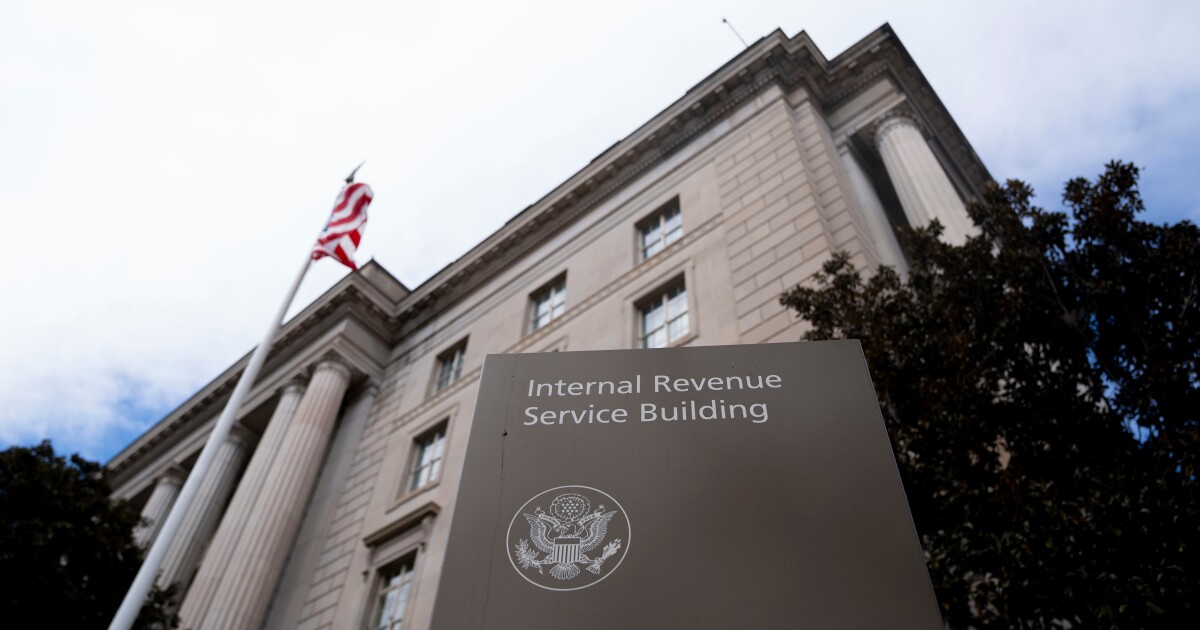The Internal Revenue Service issued a notice Friday giving some breathing room to participants and advisors involved with micro-captive insurance companies.
In January, the IRS issued final regulations designating micro-captive transactions as “listed transactions” and “transactions of interest,” akin to tax shelters. The IRS had proposed the regulations in 2023 but needed to be careful to comply with the Administrative Procedure Act to allow for a comment period and hearing after a 2021 ruling by the Supreme Court in favor of a micro-captive company called CIC Services because the IRS hadn’t followed those procedures back in 2016 when designating micro-captives as transactions of interest. However, the micro-captive insurance industry has asked for more time to comply with the new reporting and disclosure requirements, and one group known as the 831(b) Institute announced earlier this week it had sent a letter to the IRS’s acting commissioner requesting an extension.
On Friday, the IRS issued Notice 2025-24, which provides relief from penalties under Section 6707A(a) and 6707(a) of the Tax Code for participants in and material advisors to micro-captive reportable transactions for disclosure statements required to be filed with the Office of Tax Shelter Analysis. However, the relief applies only if the required disclosure statements are filed with that office by July 31, 2025.
In the notice, the IRS acknowledged that stakeholders had raised concerns regarding the ability of micro-captive reportable transaction participants to comply in a timely way with their initial filing obligations with respect to “Later Identified Micro-captive Listed Transactions” and “Later Identified Microcaptive Transactions of Interest.”
In light of the potential challenges associated with preparing disclosure statements during tax season and in the interest of sound tax administration, the IRS said it would waive the penalties under Section 6707A(a) with respect to Later Identified Micro-captive Listed Transaction and Later Identified Microcaptive Transaction of Interest disclosure statements completed in accordance with Section 1.6011-4(d) and the instructions for Form 8886, Reportable Transaction Disclosure Statement, if the participant files the required disclosure statement with OTSA by July 31, 2025.
The relief is limited to Later Identified Micro-captive Listed Transactions and Later Identified Micro-captive Transactions of Interest. However, the notice does not provide relief from penalties under Section 6707A(a) for participants required to file a copy of their disclosure statements with OTSA at the same time the participant first files a disclosure statement by attaching it to the participant’s tax return.
Taxpayers who are concerned about meeting the due date for these disclosure statements can ask for an extension of the due date for their tax return to obtain additional time to file such disclosure statements. The disclosures required from participants in micro-captive listed transactions and transactions of interest on or after July 31, 2025, remain due as otherwise set forth in the regulations.
There’s also a waiver for the material advisor penalty for similar reasons. “In light of potential challenges associated with preparing disclosure statements during tax return filing season and in the interest of sound tax administration, the IRS will waive penalties under section 6707(a) with 5 respect to Later Identified Micro-captive Listed Transaction and Later Identified Microcaptive Transaction of Interest disclosure statements completed in accordance with § 301.6111-3(d) and the instructions to Form 8918, Material Advisor Disclosure Statement, if the material advisor files the required disclosure statement with OTSA by July 31, 2025,” said the notice. “Disclosures required from material advisors with respect to Micro-captive Listed Transactions and Micro-captive Transactions of Interest on or after July 31, 2025, remain due as otherwise set forth in § 301.6111-3(e). This notice does not modify any list maintenance and furnishment obligations of material advisors as set forth in section 6112 and § 301.6112-1. “


 Economics1 week ago
Economics1 week ago
 Economics6 days ago
Economics6 days ago
 Personal Finance6 days ago
Personal Finance6 days ago
 Accounting7 days ago
Accounting7 days ago
 Blog Post3 days ago
Blog Post3 days ago
 Personal Finance1 week ago
Personal Finance1 week ago
 Economics1 week ago
Economics1 week ago
 Finance6 days ago
Finance6 days ago











